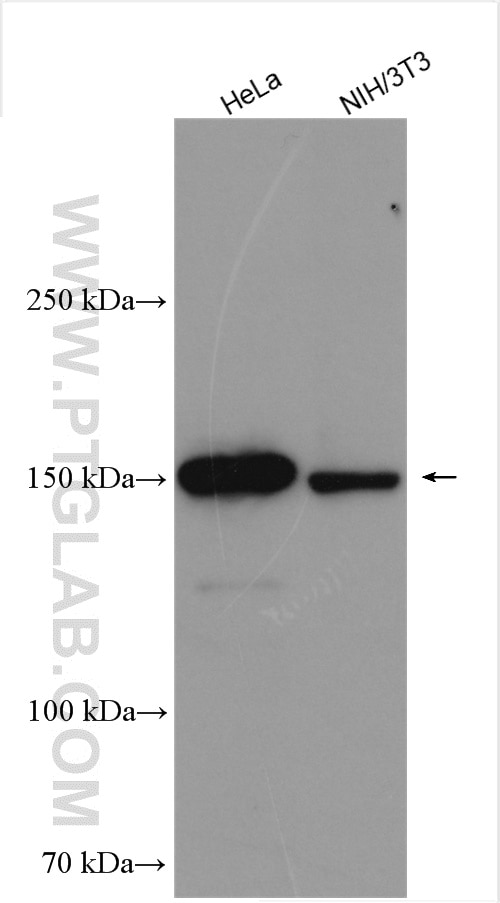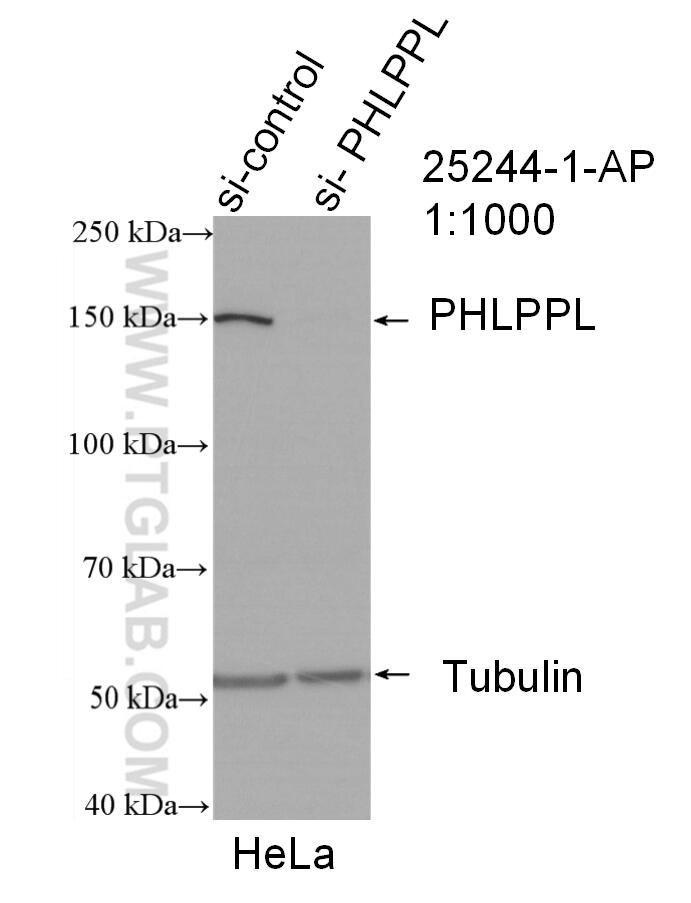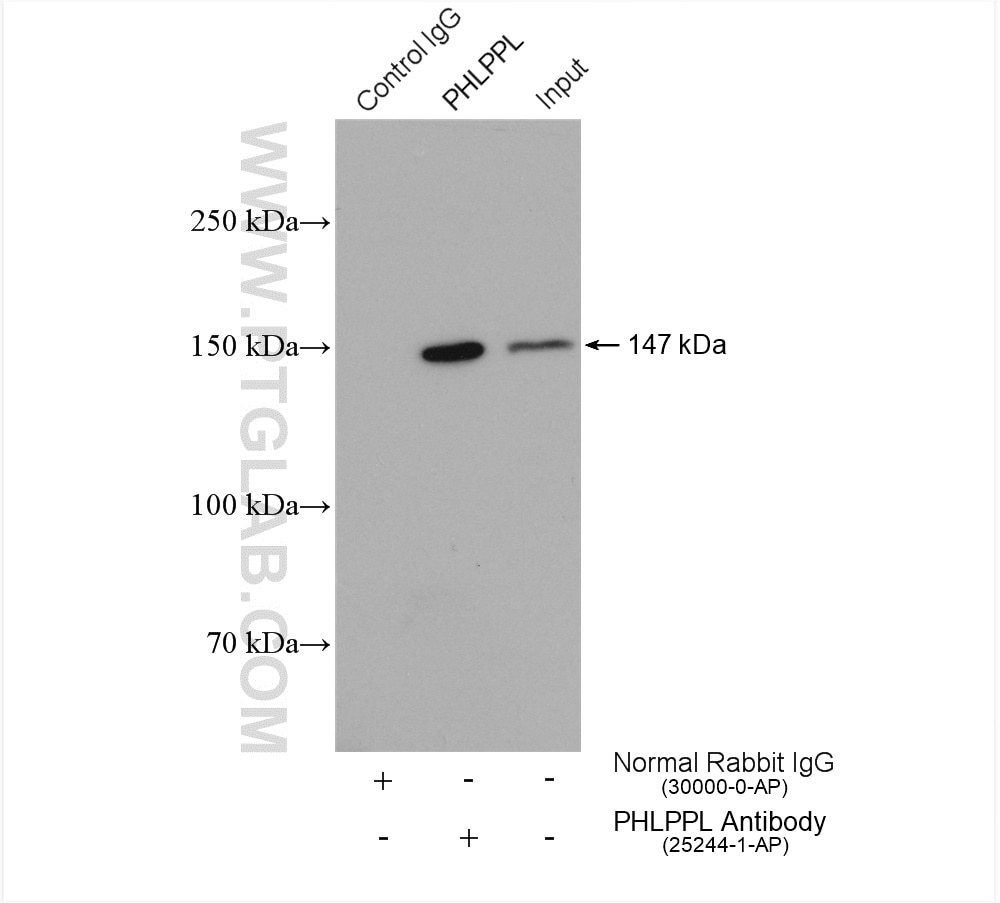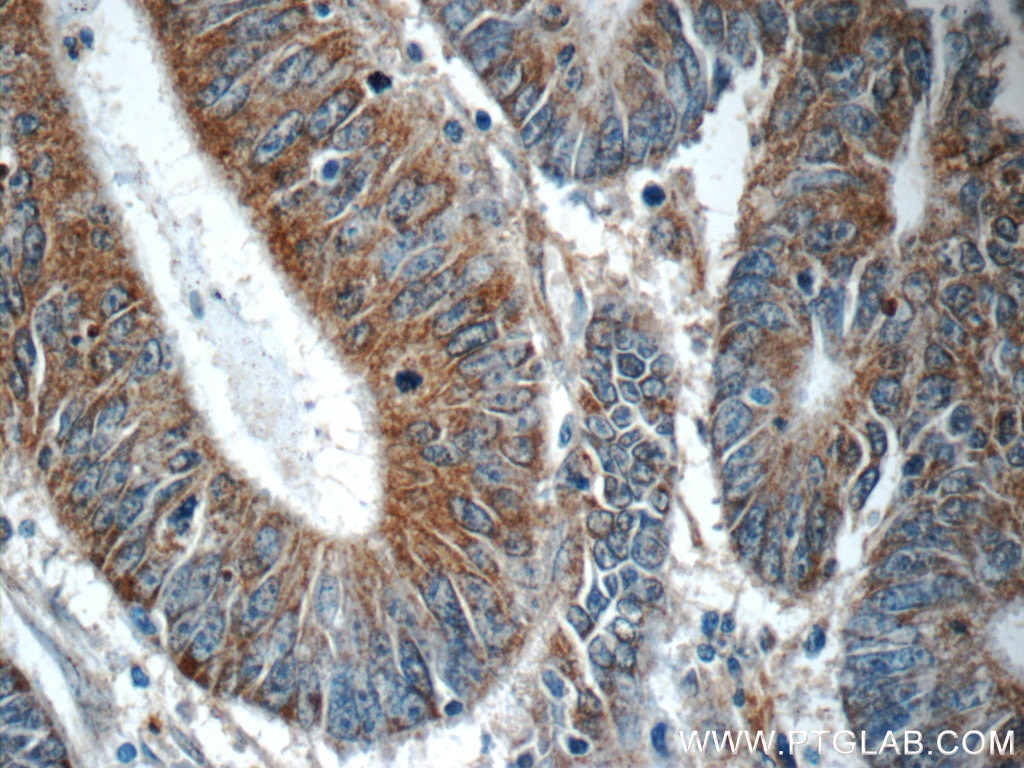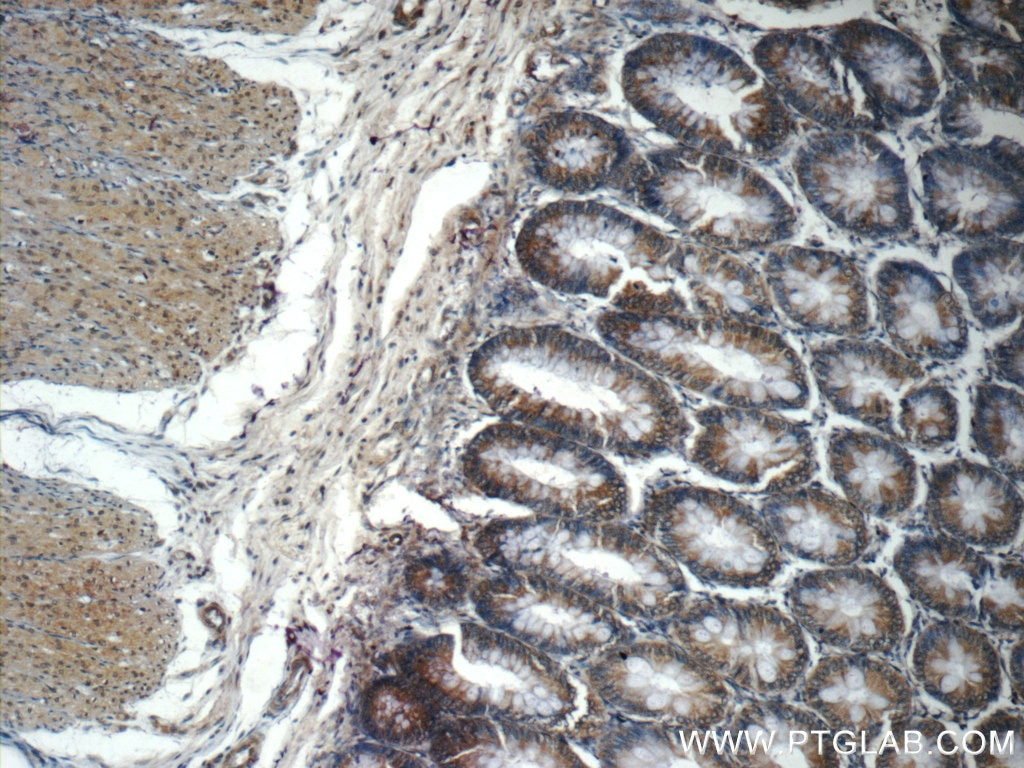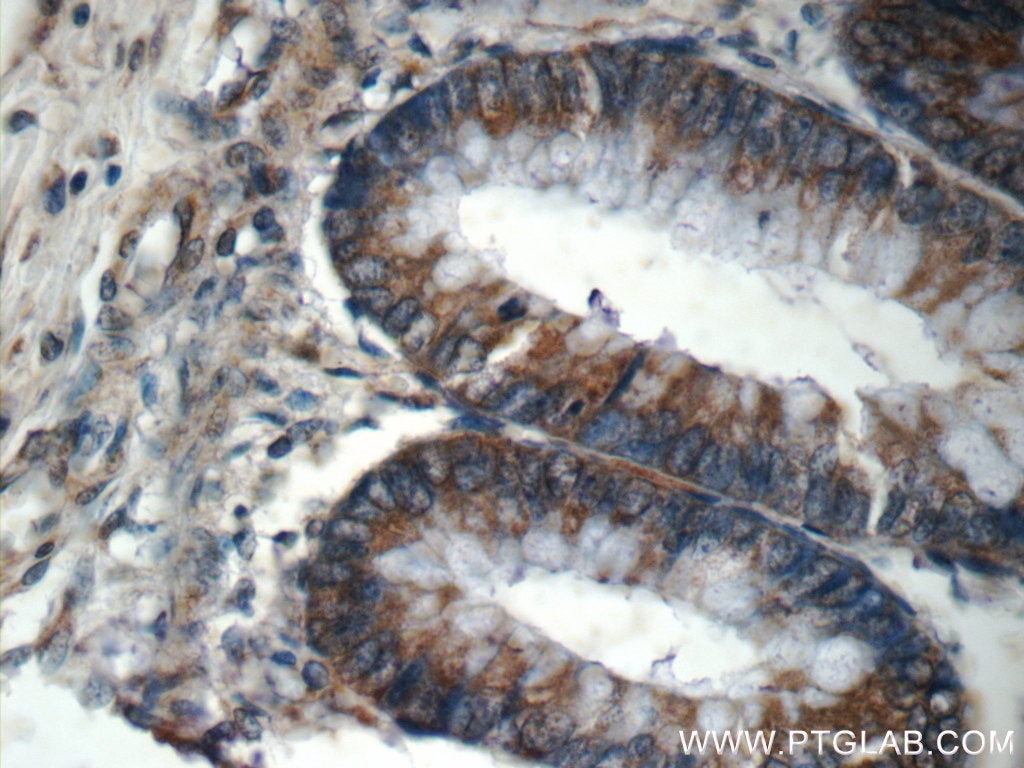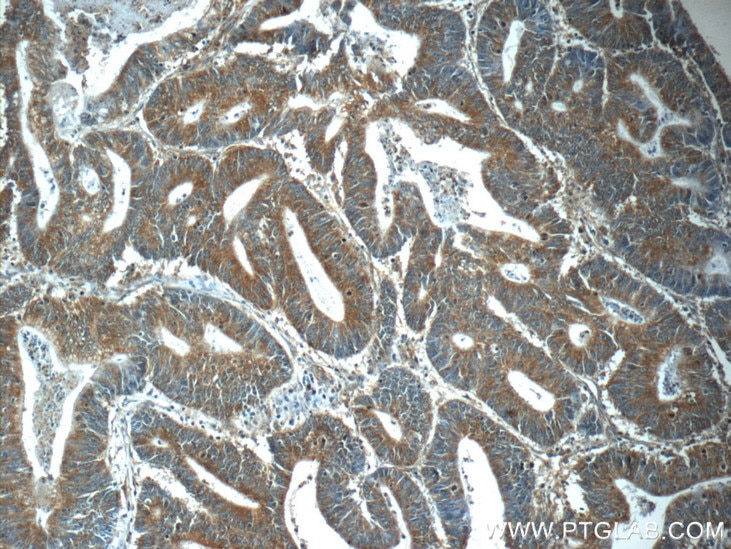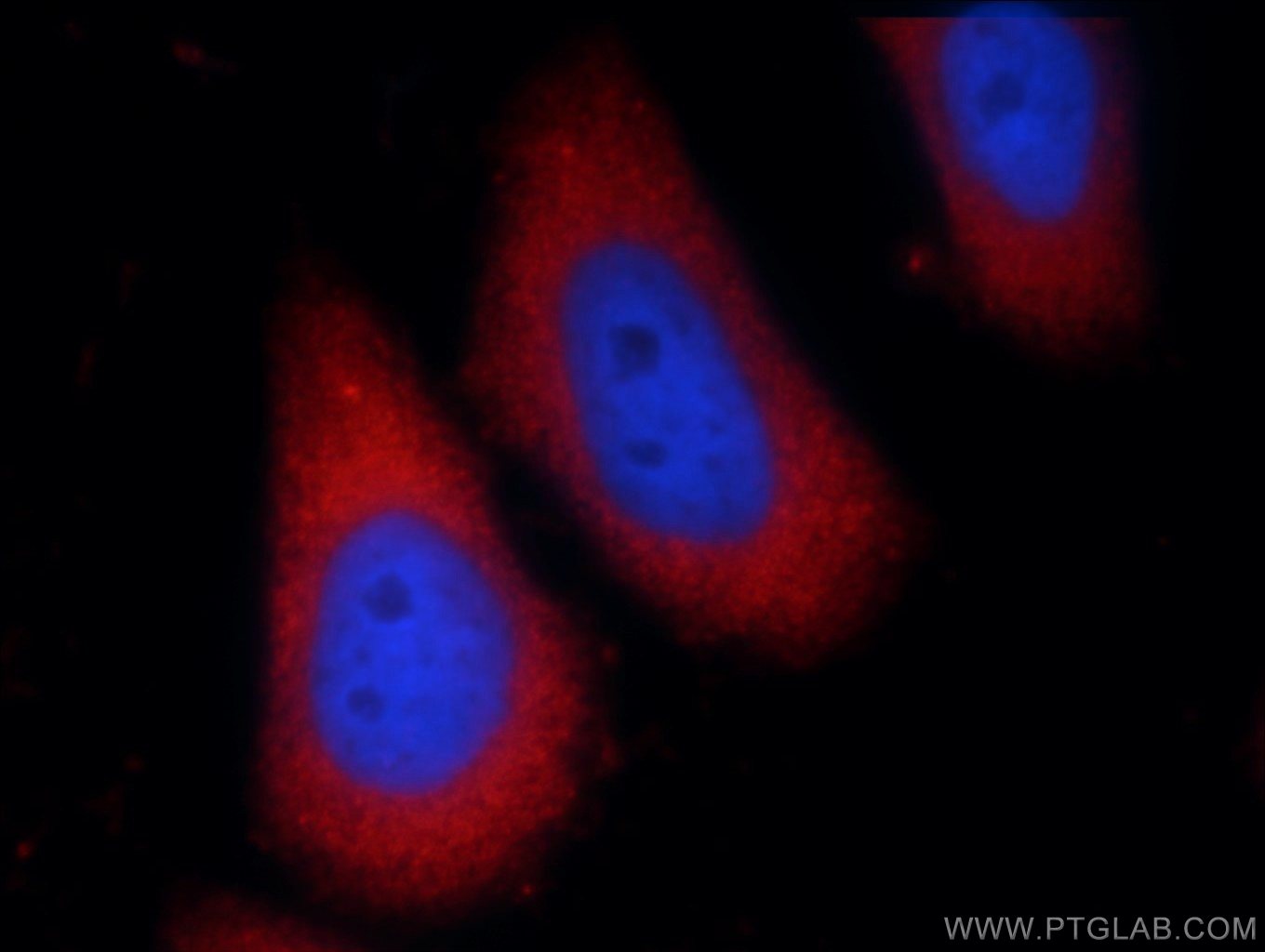Validation Data Gallery
Tested Applications
| Positive WB detected in | HeLa cells, NIH/3T3 cells |
| Positive IP detected in | HeLa cells |
| Positive IHC detected in | human colon cancer tissue, human colon tissue Note: suggested antigen retrieval with TE buffer pH 9.0; (*) Alternatively, antigen retrieval may be performed with citrate buffer pH 6.0 |
| Positive IF/ICC detected in | HeLa cells |
Recommended dilution
| Application | Dilution |
|---|---|
| Western Blot (WB) | WB : 1:500-1:2000 |
| Immunoprecipitation (IP) | IP : 0.5-4.0 ug for 1.0-3.0 mg of total protein lysate |
| Immunohistochemistry (IHC) | IHC : 1:20-1:200 |
| Immunofluorescence (IF)/ICC | IF/ICC : 1:10-1:100 |
| It is recommended that this reagent should be titrated in each testing system to obtain optimal results. | |
| Sample-dependent, Check data in validation data gallery. | |
Published Applications
| KD/KO | See 3 publications below |
| WB | See 15 publications below |
| IHC | See 5 publications below |
| IF | See 2 publications below |
Product Information
25244-1-AP targets PHLPP2 in WB, IHC, IF/ICC, IP, ELISA applications and shows reactivity with human, mouse, rat samples.
| Tested Reactivity | human, mouse, rat |
| Cited Reactivity | human, mouse, rat, zebrafish |
| Host / Isotype | Rabbit / IgG |
| Class | Polyclonal |
| Type | Antibody |
| Immunogen |
CatNo: Ag19000 Product name: Recombinant human PHLPPL protein Source: e coli.-derived, PET28a Tag: 6*His Domain: 575-781 aa of BC129927 Sequence: LDLQHNALTRLPDTLFSKALNLRYLNASANSLESLPSACTGEESLSMLQLLYLTNNLLTDQCIPVLVGHLHLRILHLANNQLQTFPASKLNKLEQLEELNLSGNKLKTIPTTIANCKRLHTLVAHSNNISIFPEILQLPQIQFVDLSCNDLTEILIPEALPATLQDLDLTGNTNLVLEHKTLDIFSHITTLKIDQKPLPTTDSTVTS 相同性解析による交差性が予測される生物種 |
| Full Name | PH domain and leucine rich repeat protein phosphatase-like |
| Calculated molecular weight | 1323 aa, 147 kDa |
| Observed molecular weight | 147 kDa |
| GenBank accession number | BC129927 |
| Gene Symbol | PHLPPL |
| Gene ID (NCBI) | 23035 |
| RRID | AB_2879985 |
| Conjugate | Unconjugated |
| Form | |
| Form | Liquid |
| Purification Method | Antigen affinity purification |
| UNIPROT ID | Q6ZVD8 |
| Storage Buffer | PBS with 0.02% sodium azide and 50% glycerol{{ptg:BufferTemp}}7.3 |
| Storage Conditions | Store at -20°C. Stable for one year after shipment. Aliquoting is unnecessary for -20oC storage. |
Background Information
PHLPP2 also named as PHLPPL is a 1323 amino acid protein, which contains 22 LRR repeats, 1 PH domain and 1 PP2C-like domain. Localized to both the nucleus and the cytoplasm, PHLPPL uses manganese as a cofactor and mediates the dephosphorylation of Akt1, thereby playing a role in cell survival and apoptotic regulation. Multiple isoforms of PHLPPL exist due to alternative splicing events.
Protocols
| Product Specific Protocols | |
|---|---|
| IF protocol for PHLPP2 antibody 25244-1-AP | Download protocol |
| IHC protocol for PHLPP2 antibody 25244-1-AP | Download protocol |
| IP protocol for PHLPP2 antibody 25244-1-AP | Download protocol |
| WB protocol for PHLPP2 antibody 25244-1-AP | Download protocol |
| Standard Protocols | |
|---|---|
| Click here to view our Standard Protocols |
Publications
| Species | Application | Title |
|---|---|---|
Oxid Med Cell Longev Colonic Epithelial PHLPP2 Deficiency Promotes Colonic Epithelial Pyroptosis by Activating the NF-κB Signaling Pathway.
| ||
Mol Ther Nucleic Acids Tumor-Derived EV-Encapsulated miR-181b-5p Induces Angiogenesis to Foster Tumorigenesis and Metastasis of ESCC. | ||
Oncotarget PHLPP negatively regulates cell motility through inhibition of Akt activity and integrin expression in pancreatic cancer cells.
| ||
Oncotarget High PHLPP1 expression levels predicts longer time of acquired resistance to EGFR tyrosine kinase inhibitors in patients with lung adenocarcinoma. | ||
FASEB J Role of epigenetic m6 A RNA methylation in vascular development: mettl3 regulates vascular development through PHLPP2/mTOR-AKT signaling. | ||
Front Oncol Reduced PHLPP Expression Leads to EGFR-TKI Resistance in Lung Cancer by Activating PI3K-AKT and MAPK-ERK Dual Signaling. |

